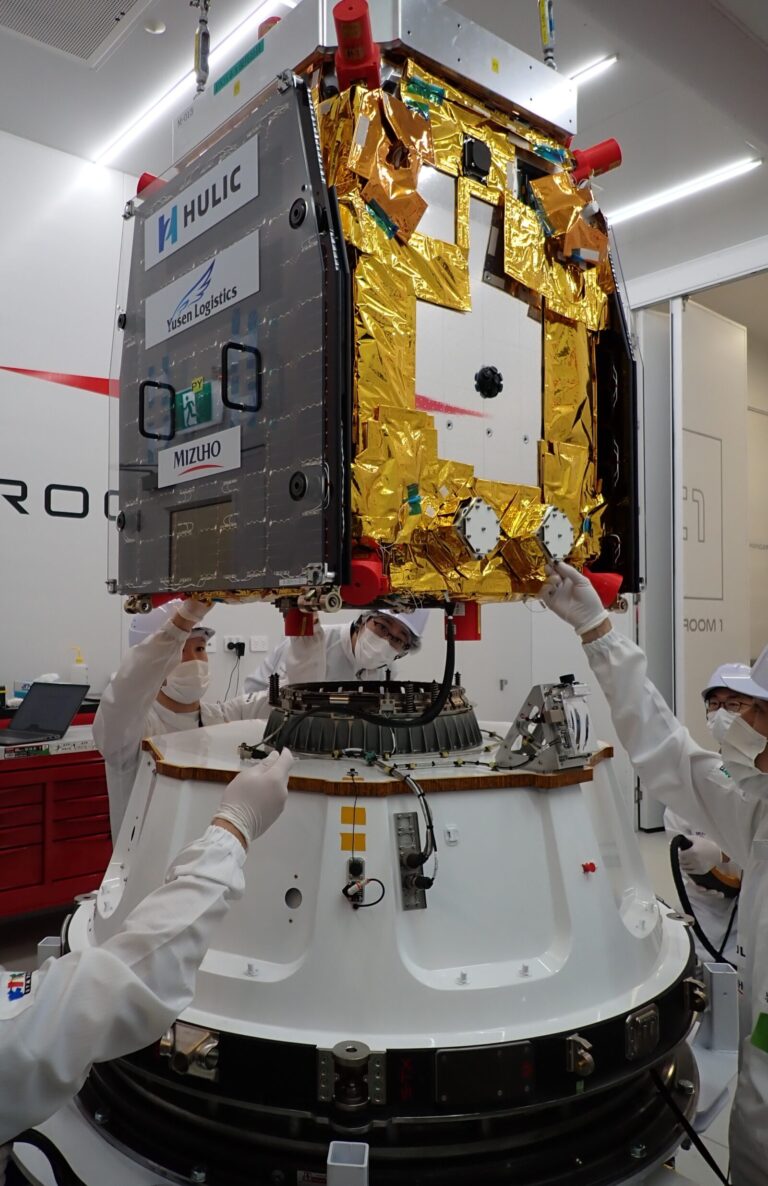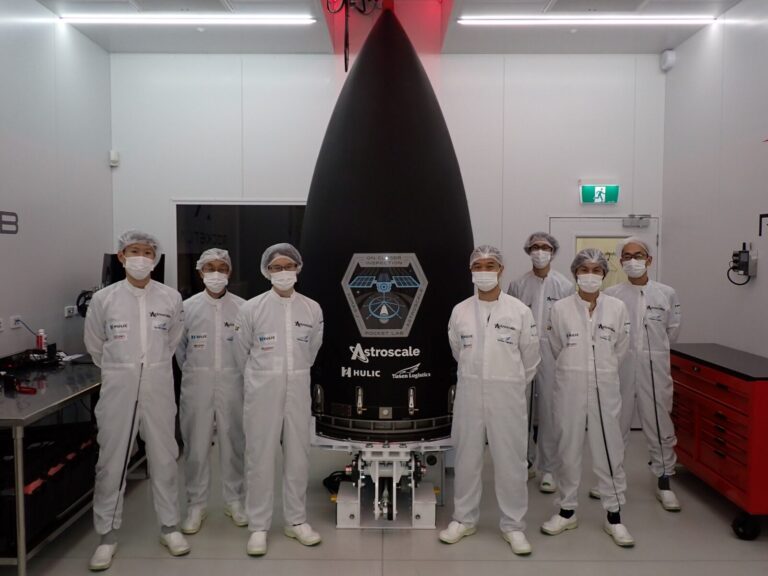Astroscale’s ADRAS-J Ready for Launch from Rocket Lab Launch Complex 1 on Sunday, February 18
A world-first mission aimed at inspecting and understanding orbital debris to create a sustainable space environment.
Tokyo, Japan, Feb. 8, 2024 – Astroscale Japan Inc. (“Astroscale Japan”), a subsidiary of Astroscale Holdings Inc. (“Astroscale”), the market leader in satellite servicing and long-term orbital sustainability across all orbits, will launch its commercial debris inspection demonstration satellite, Active Debris Removal by Astroscale-Japan (ADRAS-J), on a Rocket Lab Electron rocket from Launch Complex 1 in Mahia, New Zealand on Sunday, February 18 UTC (Monday, February 19 NZDT).
ADRAS-J was shipped from Astroscale Japan’s headquarters in Tokyo in October 2023, and final preparations for launch are underway at Rocket Lab’s facilities in addition to operational control testing from the Mission Control Center in Tokyo.

“I am so proud to see ADRAS-J ready for launch,” said Eijiro Atarashi, ADRAS-J Project Manager. “This mission will not only demonstrate highly difficult and innovative RPO capabilities that will support future on-orbit services, including debris removal, but it also represents a significant step forward in creating a sustainable orbital environment for generations to come.”
The ADRAS-J spacecraft was selected by the Japan Aerospace Exploration Agency for Phase I of its Commercial Removal of Debris Demonstration program. Astroscale Japan is responsible for the design, manufacture, test, launch and operations of ADRAS-J.
The ADRAS-J mission is the world’s first attempt to safely approach, characterize and survey the state of an existing piece of large debris through Rendezvous and Proximity Operations (RPO). ADRAS-J is designed to rendezvous with an unprepared Japanese H2A upper stage rocket body (approximately 11 meters long, 4 meters in diameter, and weighing approximately 3 tons), demonstrate proximity operations, and gather images to assess the rocket body’s movement and condition of the structure. Unprepared objects in orbit pose an additional challenge as they have not been prepared with any technologies that enable docking or potential servicing or removal. The mission will demonstrate the most challenging RPO capabilities necessary for on-orbit services.
ADRAS-J Mission Highlights
- ADRAS-J will be the world’s first attempt to safely approach and characterize an existing piece of large debris through RPO.
- The mission will lay the groundwork for one of the world’s first active debris removal (ADR) missions and for in-space inspection and situational awareness capabilities.
- ADRAS-J will demonstrate the essential RPO capabilities for delivering safe and secure on-orbit services.
- ADRAS-J will serve as a catalyst for making ADR and other on-orbit services a feasible reality for governments and commercial businesses around the world.
END

 Visit U.S. Site
Visit U.S. Site




